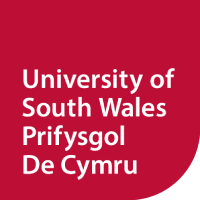Prof R Dinsdale
No more applications being accepted
Funded PhD Project (European/UK Students Only)
About the Project
NEW Deadline: Midnight Sunday 30th October 2016 (Interviews will be held w/c 31st October 2016 )
The successful candidate will have the opportunity to pursue a significant scientific and engineering ambition to develop a microbial process using microorganisms (termed C1 metabolism) that can utilise carbon monoxide, hydrogen and carbon dioxide to produce a number of products ranging from fuel vectors such ethanol, to green platform chemicals such as acetate or other products such as single cell protein (SCP) or microbial lipids which can potentially be used for food. The project is co-sponsored by one of the world’s most innovative steel making companies, Tata Steel Strip Products, UK.
The challenge that will be addressed in this proposal is to produce a range of robust and efficient of synthetic microorganism communities which can exploit C1 metabolisms to utilise a range of coproduct gases at Port Talbot. Although the gases produced at Port Talbot are relatively low cost they may contain contaminants which may adversely affect the microorganisms’ ability to convert the gases to products. By employing mixed communities the tolerance to these impurities should be increased. The other challenge that will be addressed is that the products needs to be extracted to a form which is most cost effective in relation to the income received with the level of expenditure to purify the product. A number of microbial products will be investigated to evaluate the optimum income generation and carbon capture. Although this programme of work is targeted at steel industry gases the fundamental biological processes can be targeted at a wide range of emerging applications.
The successful candidate will be supported by industrial supervision from the Port Talbot Steel Works and by professorial and post doctoral researchers at USW. Linkage to existing projects such as ERDF funded FLEXIS project and a BBSRC proof of concept grant will give the successful candidate access to a larger network of researchers and industrial interests.
Eligibility of Student:
To be eligible to hold a KESS studentship, you must:
- have a home address in the Convergence area (details below)* at the time of registration.
- have the right to take up paid work in the Convergence area* on completion of the scholarship.
- be classified by the University as ‘home’ or ‘EU’ for tuition fees purposes according to the University’s guidelines.
- satisfy University of South Wales’s admissions criteria: see below
*The Convergence area covers West Wales and the Valleys, and is made up of the following 15 local authorities: Isle of Anglesey, Gwynedd, Conwy, Denbighshire, Ceredigion, Pembrokeshire, Carmarthenshire, Swansea, Neath Port Talbot, Bridgend, Rhondda Cynon Taf, Merthyr Tydfil, Caerphilly, Blaenau Gwent and Torfaen.
Qualifications and experience:
Eligible applicants will:
- Have a degree (2i or higher) in an appropriate Scientific/Engineering discipline
- Possess understanding of microbial processes
- Be highly self-motivated, with capacity to learn and develop scientific techniques
- Have well-developed and positively collaborative interpersonal skills
- Have an ability to deliver technical reports and communicate science
- Be willing to travel and work in industrial settings
The position is available from January 2017
Funding Notes
The project is funded by the Knowledge Economy Skills Scholarship (KESS) programme and will be based in the Faculty of Computing, Engineering and Science at the University of South Wales. KESS is a programme funded by the European Social Fund (ESF) awarded by the Welsh European Funding Office (WEFO) in the Welsh Government.
The studentship will cover the fees for a 3-year full-time PhD programme and pay a stipend of circa £14k p.a. There is also around £3.5k project support costs available for consumables, travel/conference attendance, minor equipment, training (including the KESS Grad School) and conference attendance.

 Continue with Facebook
Continue with Facebook

